Charity distributes more food to people in need
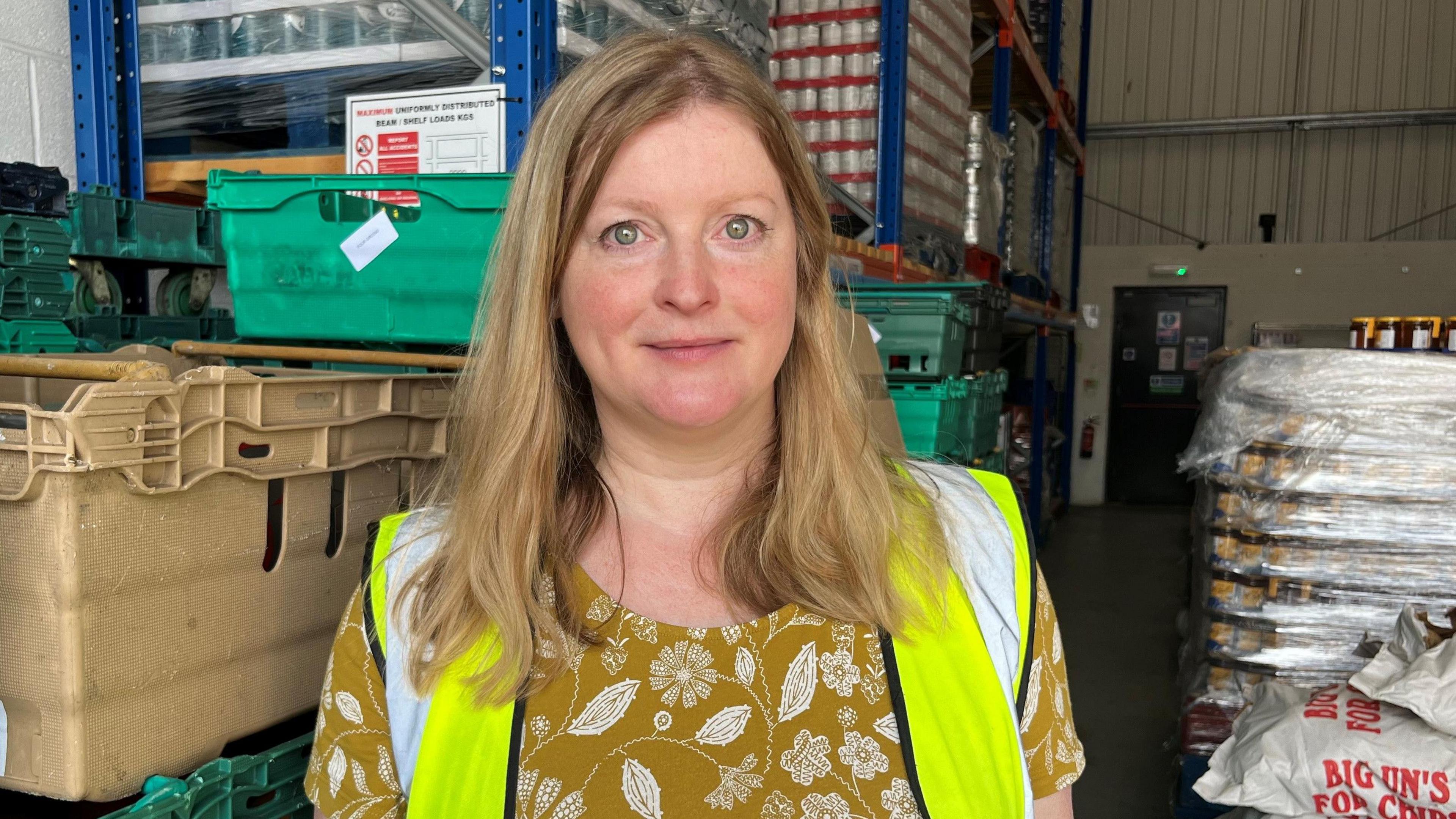
Shelley Wright from FareShare South West said food poverty was an issue politicians needed to take seriously
- Published
A food charity in Devon and Cornwall has said it distributed a record 66 tonnes of food in April to people in need.
FareShare South West takes high quality surplus goods from the food industry and redistributes it to more than 115 charities, schools and community hubs across the region.
It said the number of households seeking help had risen since the pandemic due to the cost of living crisis.
Bosses said working families and professionals such as teachers and nurses were among those needing help with food poverty.
'Emergency vital service'
Shelley Wright, who has worked with FareShare South West for eight years, said: "Since 2022 the cost of a weekly shop has gone up by 25%, so the cost of living crisis is impacting a much broader range of our demographic.
"We anticipated we would be operating a service five days a week with one van, and essentially now we operate three vans across a whole week.
"I feel like we've gone from a surplus food charity to an emergency vital service across Devon and Cornwall pretty much overnight.
"I think it's an issue politicians need to take seriously."
The charity said it delivered more than 66 tonnes of food in April - a record - an increase on about 60 tonnes delivered in a normal month.
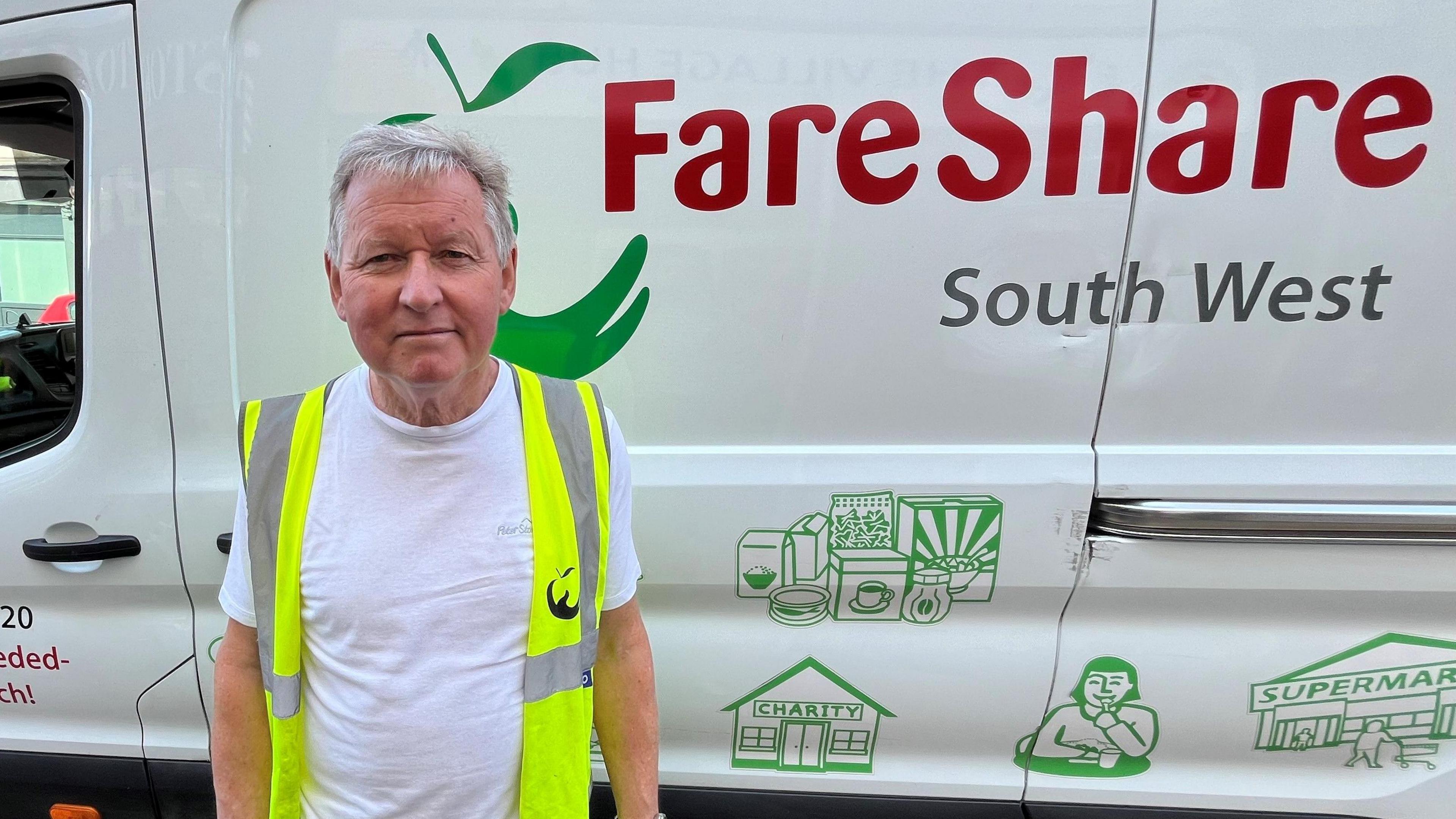
Derek Wood is one of 80 volunteers now working for the charity
Volunteer Derek Wood said "ordinary families trying to get by in life" needed help from the charity.
"When I first realised what was going on and the amount of food we're delivering I was really quite angry and that anger still remains," he said.
"I believe it's a massive social injustice that we're even doing this.
"The amount of food waste is also a national shame and we should be shouting loud about this."
'Out of money'
At the Camborne, Pool and Redruth food bank, the number of meals provided a month has gone up from 9,852 in 2021 to 13,083 in 2023.
Anna Corbett, who is the chief executive of Transformation CPR FoodBank, said they were seeing a big increase in working families seeking help.
She said this was happening alongside a drop in donations.
"That's something we've not seen before, working parents who are doing their absolute best but by the end of the month have run out of money," she said.
"At the beginning of last year things ramped up significantly, corresponding with the cost of living crisis.
"I'm surprised it's not being talked about more by party leaders across the board."
Food donations 'dropping'
Simon Fann, who is the manager at Truro Foodbank and chairman of the Living Wage Place for Cornwall Group, said: "The South West is the worst region in the country for insecure work so people cannot afford the essentials of housing, energy and food.
"Food donations are now dropping at all food banks I talk to, so we are spending more than ever buying food to meet demand.
"The cost of living crisis has not gone away at all and will be with us for years whatever happens on 4 July."
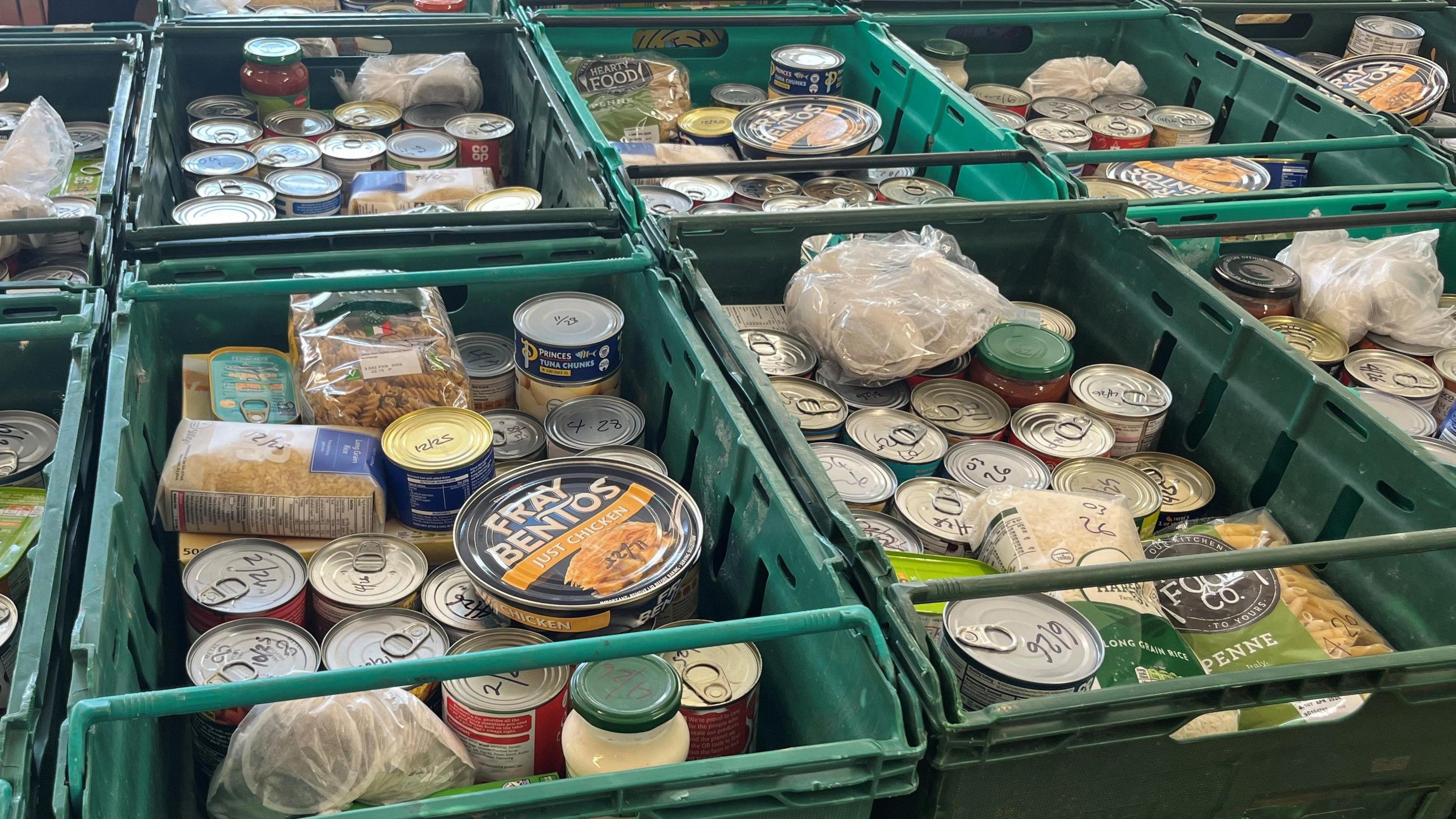
People with a referral can make eight visits in six months to the foodbank in Camborne, Pool and Redruth
How will the parties tackle the cost of living?
The Conservative Party said it would cut National Insurance (NI), scrap it for the self-employed, keep the pensioners’ triple lock and keep the Energy Price Cap.
The party also said it would lower green levies, reform standing charges, give 30 hours' free childcare to some parents, let households earning less than £120,000 keep child benefits, and freeze income tax rates, VAT, stamp duty and council tax bands.
The Green Party said it would abolish the two-child benefit cap, raise Universal Credit by £40 a week, have an all-ages minimum wage of £15 an hour, cut NI for small businesses, make high-earners keep paying it and give all workers day one rights.
The party said it also planned to cut energy bills by spending £38bn on insulating homes and installing heat pumps, raise capital gains tax and impose a wealth tax on assets above £10m.
Labour said it would cut energy bills by upgrading five million homes, impose an all-ages real living wage, ban zero-hours contracts and fire-and-rehire and give workers day one rights.
The party also says it will introduce free breakfast clubs at every English primary school, create 3,000 school nurseries, preserve the pensioners' triple-lock and freeze income tax, National Insurance and VAT.
The Liberal Democrats said it would launch a national food strategy to tackle costs, offer all parents affordable childcare, double maternity and shared parental pay and extend parental leave.
The party also said it would cut energy bills, upgrade homes, scrap the benefit cap and two-child limit and preserve the pensioners' triple lock.
Reform UK said it would scrap income tax on earnings under £20,000, raise the 40% threshold to £70,000, let one half of a married couple earn £25,000 tax-free, cut fuel duty by 20p a litre and scrap green levies.
The party said it would scrap VAT on energy bills, cut stamp duty, front load child benefits for children under four and scrap inheritance tax on estates under £2m.

Follow BBC Cornwall on X (formerly Twitter), external, Facebook, external and Instagram, external. Send your story ideas to spotlight@bbc.co.uk, external.
Related topics
- Published27 June 2023
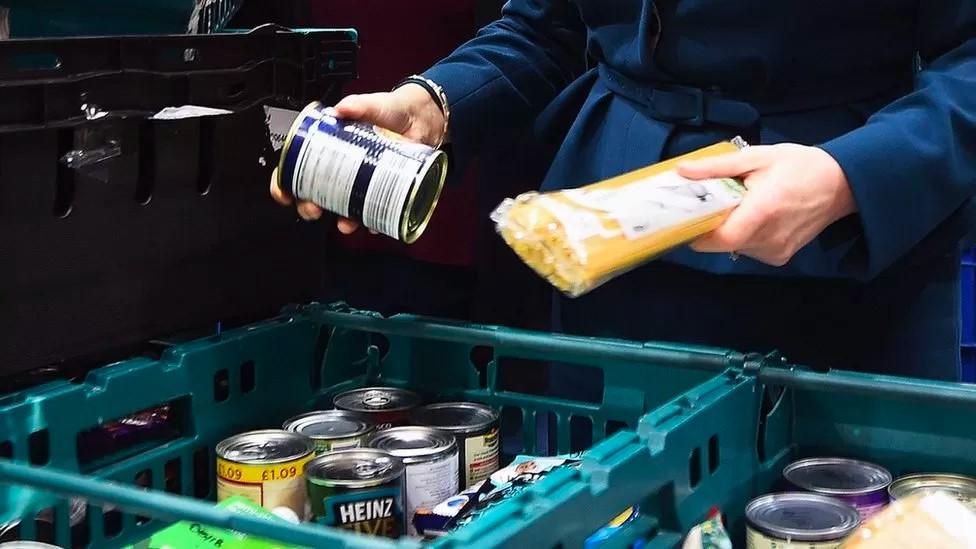
- Published20 May 2024
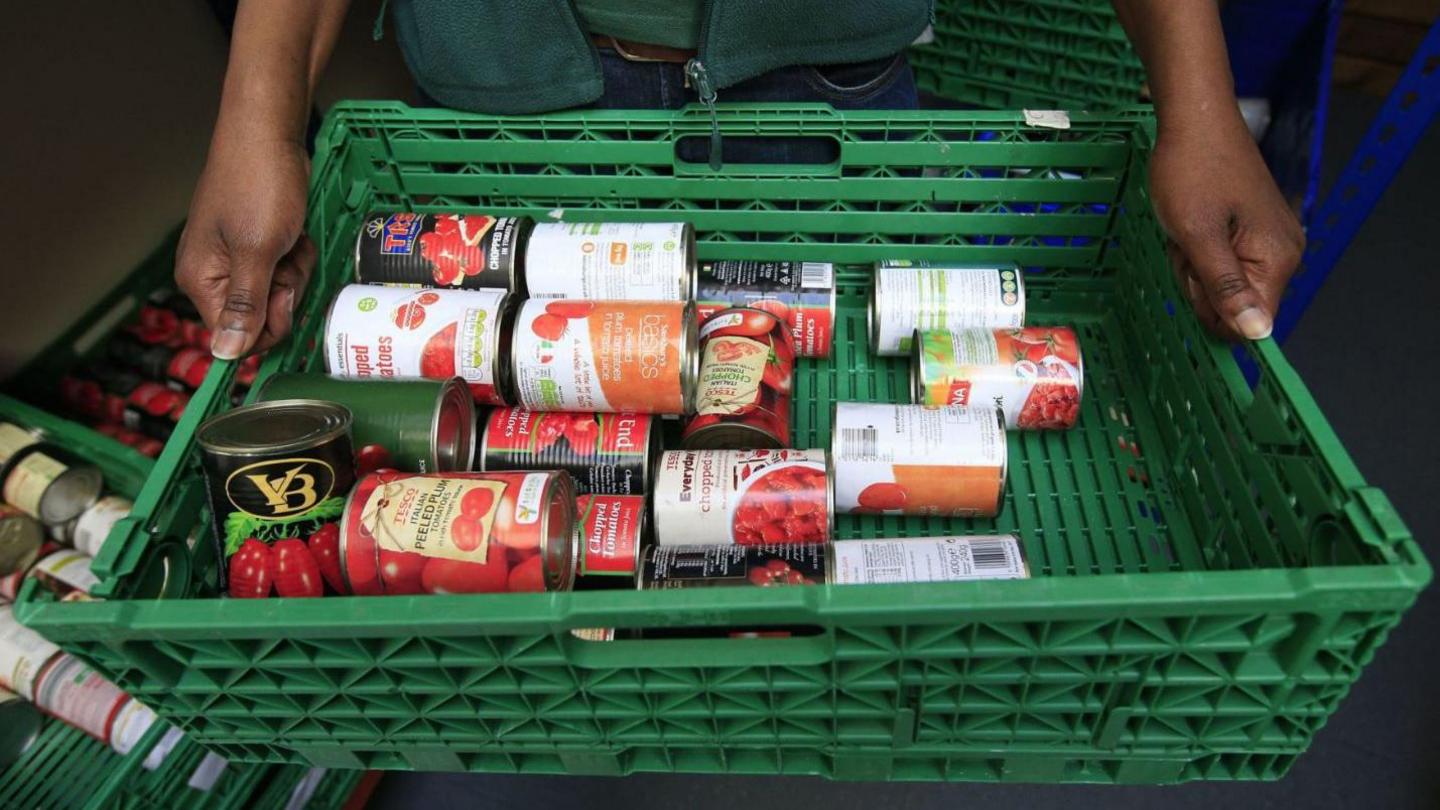
- Published11 June 2024
